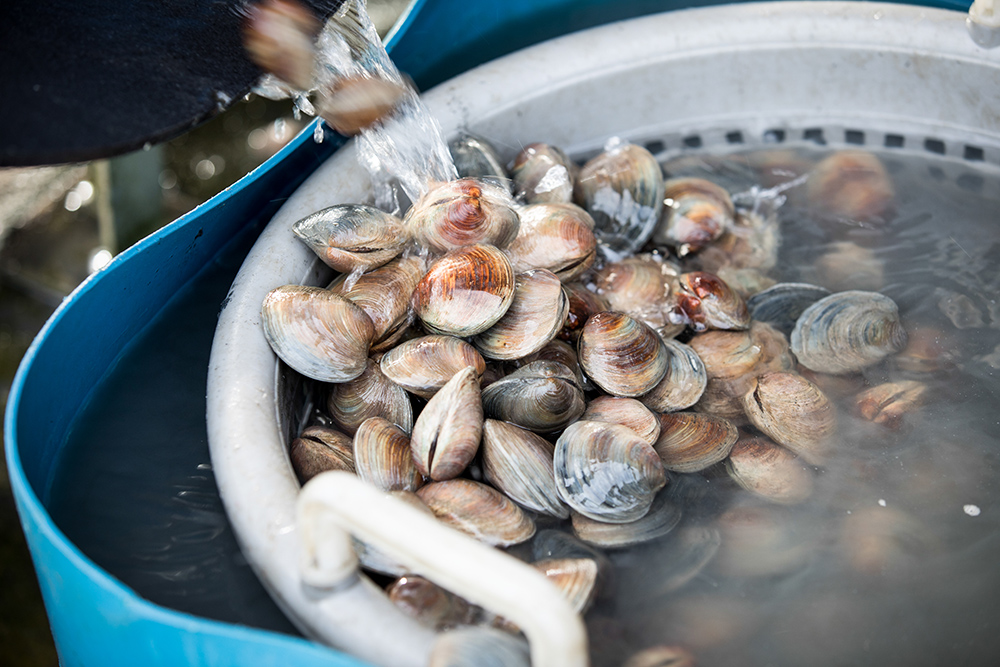
Volume XXIX |
By George Boyhan
University of Georgia
You can pick up small soil-test-sample bags from your county extension office or call to have them mailed to you. If you need any help, ask your county extension agent. They have publications and advice on the best way to take a soil sample.
A small hand trowel and a bucket are ideal to collect the sample. Randomly select several sites in your garden to take the sample. Make sure you select enough sites to represent the soil in your garden.
Here's how
Use your trowel to dig a hole 8 to 12 inches deep. From the side of this hole, slice off a 1-inch section of soil from the ground surface to the bottom of the hole. Put this in your bucket.Take other samples like this at several places in your garden, then thoroughly mix the sampled soil. Place the mixed sample in the soil-test-sample bag.
Fill out the information on the bag, including your name and address and the county you live in. Select "routine soil test" as the test you want to run. For the crop, write in "vegetable garden."
Where to go
Then take the sample to your county extension office. It will go from there to the soil test lab in Athens, Ga. The cost for a single sample is $6.The results of the soil test will show how much fertilizer to use and whether your pH is low.
The pH is a measure of soil acidity, which is important in how well plants can take up nutrients. Problems with low pH are corrected with applications of lime. Old-timers used to call this "sweetening the soil."
So don't guess, even if you're good at it. Test your soil. Take the mystery out of feeding your plants.
(George Boyhan is an Extension Service horticulturist with the University of Georgia College of Agricultural and Environmental Sciences.)






